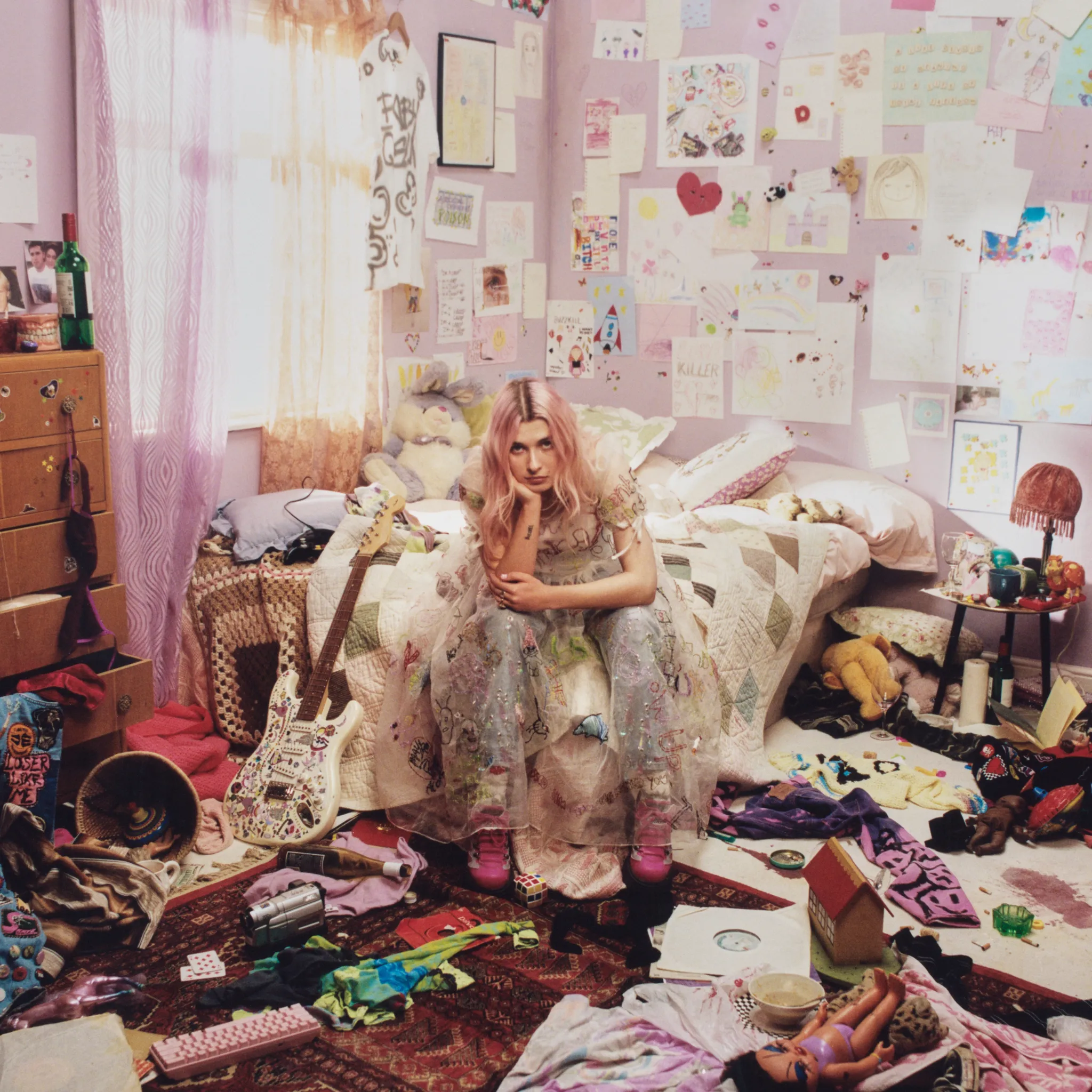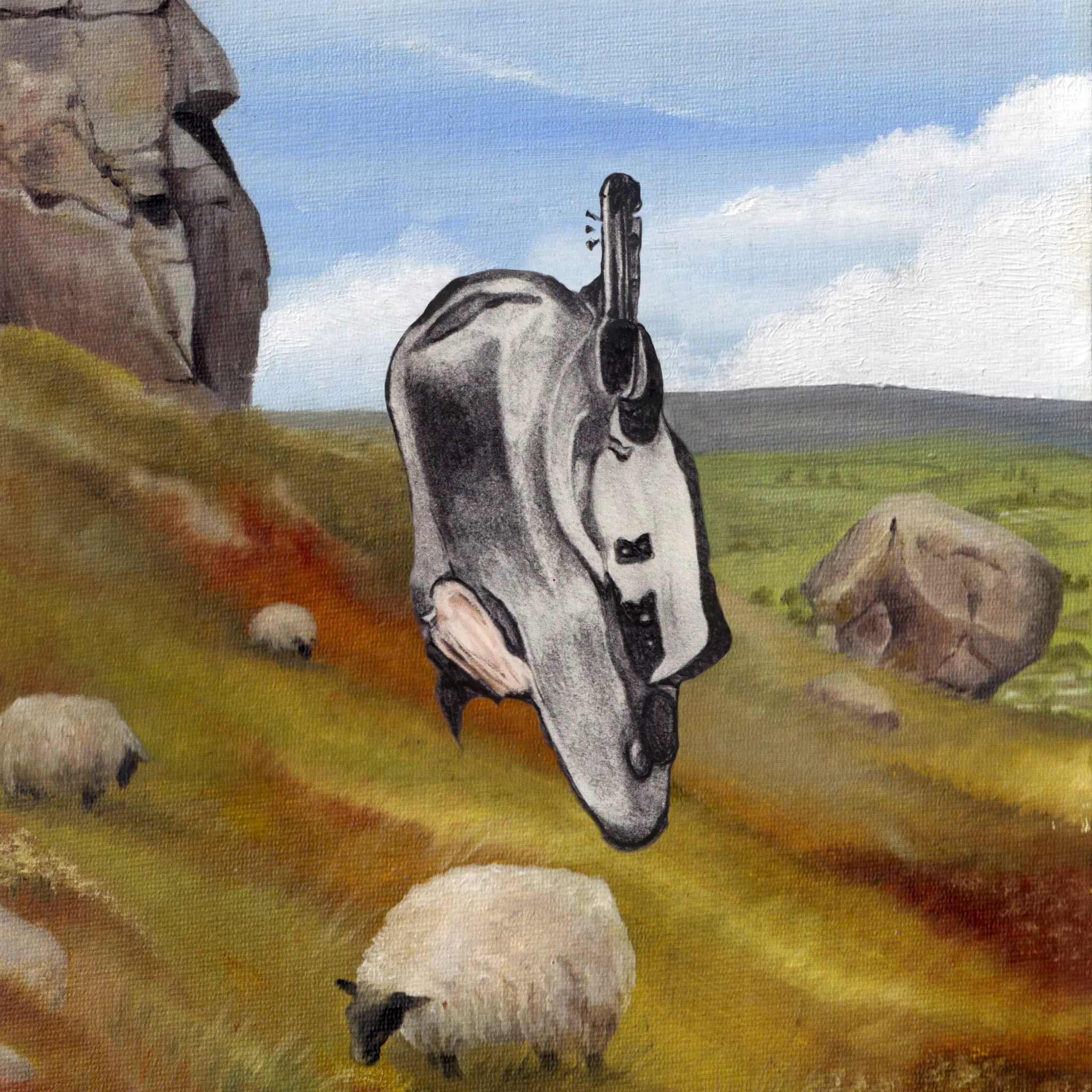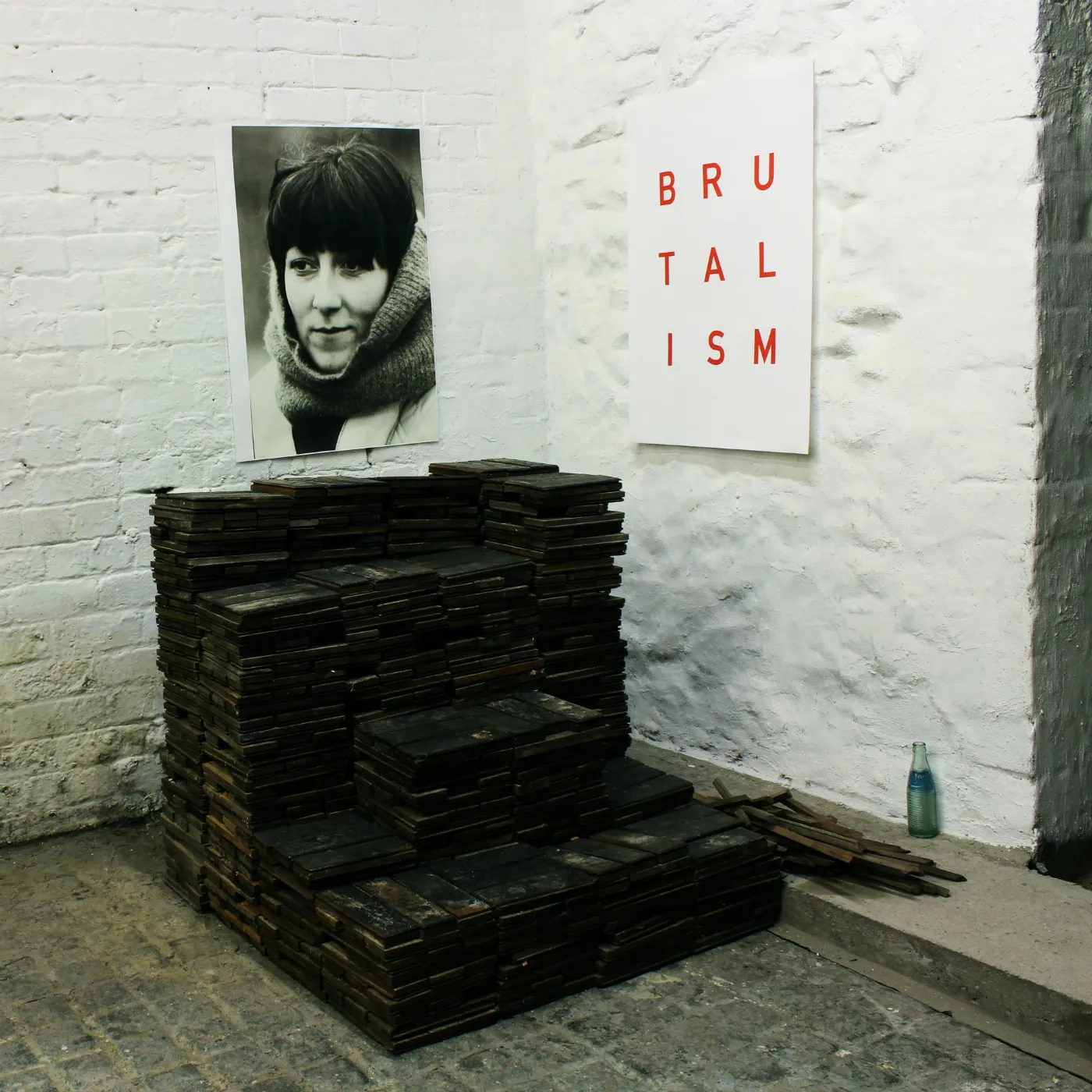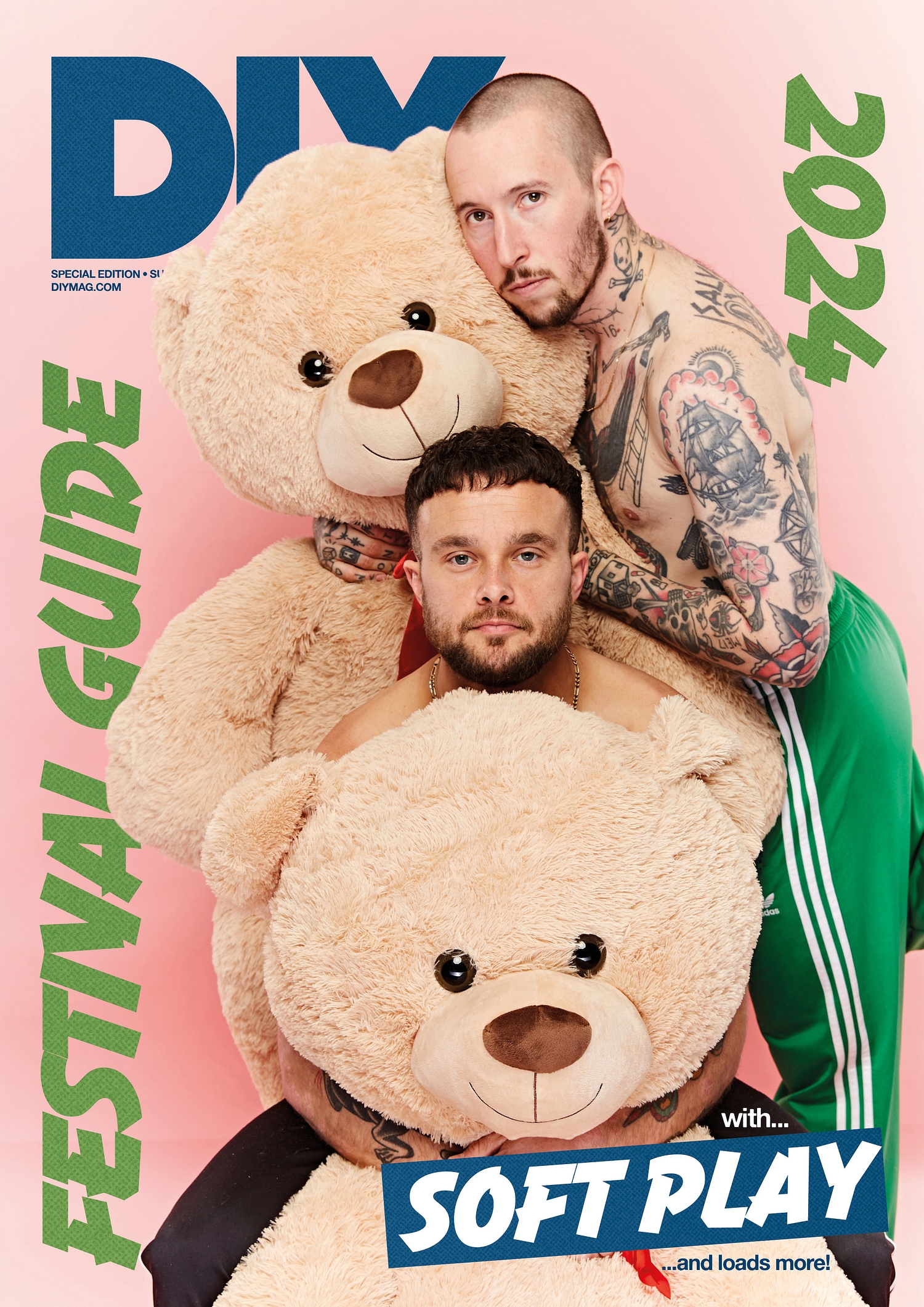Interview Tender Trap: ‘We Don’t Just Want To Make Throwaway Pop Songs Anymore’
Ameila Fletcher has been a staple of the indie scene since the mid-1980s.
Deftly balancing her role as the Office Of Fair Trade’s chief economist with a long career of writing feminist pop songs, Ameila Fletcher has been a staple of the indie scene since the mid-1980s. Having gone firstly through Tallulah Gosh and later Heavenly, it’s Tender Trap that is now her creative vehicle of choice. We caught up with her, along with Rob and Emily, at Indietracks to discuss the forthcoming record and some unusual methods of adding backing vocals to tracks.
Amelia, having been writing songs for almost thirty years now. How do you feel you’ve developed as a songwriter?
Amelia: I don’t know, sometimes I feel like I haven’t developed at all! I think the songs are a bit more grown up, both musical and lyrically. They’re now about topics which I wouldn’t have written about before. Troublesome topics. Tallulah Gosh songs were always very out-and-out pop-y, whereas I don’t feel that what we do now is like that. I sometimes think we should be, but we’re not. The other thing is that me and Rob now write songs collaboratively. In Tallulah Gosh everyone used to write songs but everyone wrote them individually. Except, actually, for ‘Tallulah Gosh’ itself which was written by my brother and me. Nowadays pretty much all of the songs are co-written by me and Rob. It’s good, because sometimes I’ll do something and he’ll pull a face or whatever, and then another time he’ll write something and I’ll get him back! We’re really critical of each other, and I think it makes what comes out that little bit better.
Emily: It’s great for the rest of us, because we’re usually shown this song with a sense of ‘here’s a present, now decorate it!’ You know, with backing vocals and things.
A: I think that’s the other thing, is that we don’t write in the backing vocals in anymore. We deliberately write songs so that they can then be put on at somepoint. We’ve got this cunning trick, where we get everyone really drunk when we’re practicing and then everyone seems perfectly happy to sit there just going ‘ba bah bah boo boo boo’ or whatever. It seems to work pretty well!
After all these years and various musical projects do you still find it difficult to express yourself in different ways, or find new topics to cover?
A: Not really, actually! I don’t know why. I think it’s because we don’t just want to make throwaway pop songs anymore so in a way we’ve set our bar the bit higher. It’s not necessarily a case of coming up with new things, it’s just that we’re challenging ourselves that it more.
To me the new record sounds really punchy. What do you think people should look out for on the new record? What are its themes?
A: Yeah, I’d say it’s quite punchy too actually
E: Well, it’s about girls… ‘Ten Songs About Girls’!
A: We actually went in lots of different directions. We started off with days of the year so there’s ‘Mayday’ and ‘Leaving Christmas Day’ but then we got stuck. At one point we were going to do an album about death so there’s a couple of songs about death, but then we got stuck again! So all of our things went wrong so it became ‘Ten Songs About Girls’
Listening to both the current record and the last one, ‘Dansette Dansette’ seemed to exist in this parallel universe of pop references, sort of like Saint Etienne. Is this something you’d agree with?
A: I think what we try and do is actually quite complicated things within a very pop, girl-group format with a bit of punk and bit of DIY culture. We don’t want it to sound miserable. We want it to sound more out and out pop, but there are more complex things in there lyrically.
Is there a sense of escapism in your music?
A: I think there probably is, actually!
E: Especially on the new album, on ‘Mayday’, you’ve got the voice of the politician’s wife. Sometimes it’s about the different lives of different people.
A: I think sometimes our music means more to us than it does other people which in many ways is quite sensible, so for example ‘Mayday’ was inspired by a not especially pleasant Tory politician and it’s sung from the point of view from his wife. I don’t know why we ended up writing that but you wouldn’t really know. You might know!
As a band, what does pop music mean to you?
Rob: That’s a really good question… I’d say it’s not macho. It can be male, but not macho. Sarcastic but not abusive. Intelligent but not bombastic. But then it should also be catchy. You should be able to enjoy purely on the basis of the melody.
A: Backing vocals are important in the scheme of pop as well, i reckon.
In your estimation where does your material fit into that whole scheme of things?
R: I think if it moves you, or makes you smile, then that’s probably quite a good step
A: I don’t think we’re quite there yet. Maybe in another twenty years or so then we’ll crack it!
Both you and your label-mates are getting a lot more attention from the likes of 6music or whatever? Is this a sign that the tide is turning for guitar-based pop music?
R: I think so and what’s beginning to surface is that there’s a wider audience for it aside from the hardcore. The people that are here. There is a wider audience. As far as reviews are concerned our last record for positive reviews in the ‘big’ press and that was interesting.
A: There’s quite often bits of the indie scene that poke its head above water. It used to be the punkier side of indie, and then following on from The Pains Of Being Pure At Heart it was the fuzzier side of indie so for a bit there was a lot of that kind of stuff sticking its head above the parapet. I think Allo Darlin’ have managed single-handedly to get theta whole song based guitar music above the parapet. Maybe 60s girl-group influenced indie will be next!
R: I think for writers for some of the mainstream titles quite a lot of what car called indie wasn’t really anything to do with indie. It’s all come out via a major label with the standard press release and I guess that isn’t very exciting for a journalist to write about and so rightly or wrongly they come looking around places like here for new things to write about, things with a sense of authenticity.
Your label boss once said that indirectly you were responsible for the whole twee culture phenomenon, with people taking away the whole knee socks and hair slides of Tallulah Gosh and Heavenly without actually taking away the songs’ messages. Is that something you’d agree with?
A: I think it probably is. We certainly played a role in it, anyway! I don’t think it was just us though. I think The Pastels did the same. so did The Shop Assistants. There were others about.
R: Yeah, there does seem to have been a raft of bands that took the socks but not the punk attitude and it all just felt a bit… synthetic.
A: I think I like a bit more of it than you do. Just give some hair clips and socks and I’m usually happy!
E: I think it has to be there in spirit, anyway. Or else it all just becomes things you can buy from Topshop without having actually listened to the records behind it. It can be a bit like that now because there’s been something of a resurgence. It’s quite interesting., I think.
Above all else, what would you hope people take away from your music?
A: For girls to be in bands, and more generally do what they should do.
R: Aside from the whole girls-in-bands side of it, there’s also a far more general theme of feminism in our records. I think that’s very important and i’d hope that doesn’t get lost.
A: Our lyrics are perhaps not so overtly feminist as they used to be, but we’ve always described the female point of view on the world, which in its own way is feminist, I suppose!
Read More
Listen: Tender Trap Post Christmas Song
The track is titled 'Leaving Christmas Day', and appears on their recent album.
15th December 2012, 1:50pm
Tender Trap - Ten Songs About Girls
2-5 Stars
Spoken-word sections? Tambourines? C86-style guitar twanging? Please.
11th September 2012, 9:14am
Tender Trap Announce New Album ‘Ten Songs About Girls’
The indie pop five-piece are set to release their fourth full-length through Fortuna Pop! next month.
13th August 2012, 10:11am
Featuring SOFT PLAY, Corinne Bailey Rae, 86TVs, English Teacher and more!





